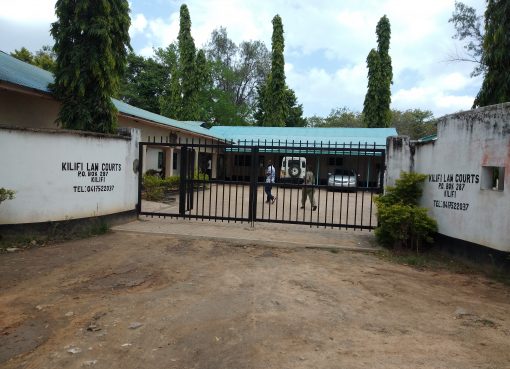At a tender age of 22 years, Ruth Nyambura Kiarie chose the wrong path of alcoholism. Excessive drinking became a lifestyle that cemented her relationship with fellow alcoholics.
And for more than 8 years, Kiarie has been battling addiction, often finding it difficult to separate reality from fantasy.
“For all those years, nothing mattered to me but alcohol. I lived and dreamed of alcohol. It did not matter how much it cost or where it came from, I absolutely had to have it,” she recalls.
She opens up that gradually her alcohol tolerance was so high that she would not get drunk on beer alone. Now she had to mix beer with ‘harder’ drinks.
The mother of a six-year-old boy reveals that by now, most of her friends and relatives were avoiding her.
“My relationship with my child was poor because I was drunk all the time. Had I realized that the first sip of liquor I took as a cheeky activity with friends would spiral out of control and thrust me into a long-drawn-out battle with alcoholism, I would have reconsidered my actions,” swears the 30-year-old from Ndumberi village in Kiambu County.
But her salvation came in the form of a residential treatment facility at Njoro Sub-County in Nakuru. It was while confined at the Beyond Love Rehabilitation Center that the embers of love first sparked and interestingly, greatly helped shape her life.
After checking into the rehabilitation centre in March 2022, Kiarie went through a 12-step recovery programme.
For the past nine months, she has been the only woman in an alcoholic recovery program alongside six men. The seven recovered alcoholics are now ready to be reintegrated into the society after being rehabilitated and equipped with vocational skills such as interior design, fashion and design, electrical installation, joinery among others at the Beyond Love Rehabilitation Center.
“I have recovered fully and have now had about 275 days of sobriety. Being sober is the best thing that has ever happened to me. Waking up without a hangover is simply beautiful,” affirms Kiarie.
She adds; “I have opened a new chapter in my life. I plan to re-live my life. I will now shower my son with the motherly love and attention he lacked. I want to listen to his problems, ideas and experiences.”
She vows that she will make sure that her parents and siblings are the happiest people in the world.
“We fell out so many times because of my alcoholism,” offers Kiarie, adding that many female alcoholics suffer in silence.
She observes that in African culture, women are not supposed to drink in public, let alone become alcoholics adding that this is what brings about the stigma, barring them from seeking professional help.
“I accepted that I had a problem and needed help. I overcame denial. I made it. Someone else can make it too,” Kiarie assures.
Beyond Love Rehabilitation Center founder Virginia Muthoni says while it’s important to be open and honest about one’s concerns over a family member who is an alcoholic, it is vital to remember that one cannot force someone to stop abusing alcohol.
She advises: “Try to remain neutral and be compassionate with the affected family member rather than judge them or try to shame them. Encourage your loved one to open up about the reasons they are abusing alcohol, for instance if they are bored, lonely, anxious or simply stressed.”
Muthoni, who is also a counsellor and psychologist, calls on parents to avoid emotional appeals that may only add to the troubled alcoholic’s feelings of guilt and increase their compulsion to drink.
“Offer advice not ultimatums. Do not cover up for your loved one or make excuses for their behaviour. Trying to shield them from their responsibilities will only prevent them from seeing the negative consequences of their drinking and could delay their resolve to get help for the problem,” Muthoni adds.
Muthoni says one of the best ways to stop a possible addiction before it begins is to be keen on one’s mental state and health.
“You have to be proactive. If you go through a traumatic experience, seek therapy. Don’t look for excuses; they turn into that addiction that you can’t stop. For most people struggling with addiction, it started as a joke. And now they can’t come out of it. You feel so ashamed that you don’t know how to address this issue.”
For 68-year-old Beth Wangui Karori from Gachura Village within Bahati Sub-County of Nakuru, immediate family members are more often than not in denial that their son, daughter, sister, wife, mother, niece, aunt or even grandmother is an alcoholic and in need of help.
Karori, whose 27-year-old son Laurence Njuguna has undergone the 9-month alcoholic recovery program at the Beyond Love Rehabilitation Center holds that the humiliating rejection experienced by people who are stigmatized for their alcohol and drug abuse acts as a powerful social punishment, driving them to continue and perhaps intensify their drug-taking.
The retired civil servant observes that young alcoholics have dropped out of colleges, sold their household items and indulged in crime, while others have gone berserk or been reduced to zombies, unable to perform simple tasks such as washing clothes or even taking a bath.
She advocates that county governments and local NGOs should prioritize dealing with alcoholism, drug and substance abuse by enhancing access to treatment and after-care services.
“The counties should also come up with empowerment programmes for addicts so that they can comfortably afford basic needs and avoid returning to alcohol and drugs after rehabilitation,” Ms Karori appeals.
She petitions the county government of Nakuru to set up a treatment facility for addicts at the county referral hospital where the affected youths can access free services.
“The cost of treatment is high and the majority of families with addicts cannot afford it,” Ms Karori says.
According to her, those who have become alcohol dependent should not be written off from society, when sobriety can be achieved with a helping hand.
For 37-year-old Benson Kimani Njoroge from Kanunga village in Kiambu his life went south after he was lured into alcohol abuse by some of his friends and it did not take him long before he separated from his wife, when their daughter was two years old.
“I sold my properties to get money to satisfy the insatiable urge for the bottle. That was the genesis of my marriage woes,” Mr Njoroge reminisces, saying he previously operated a business that collapsed as he sank deeper into alcoholism.
He adds: “Since checking into Beyond Love Rehabilitation Center in March 2022 my life has really changed. I used to have very low self-esteem, but I now walk with my head held high,”
Njoroge reveals that he sleeps and eats well and also enjoys a good relationship with God. “I now pray and meditate. Before then, I only asked God for the landlord not to come at month-end because I had drunk the rent!” Njoroge notes describing his previous battle with alcoholism as grueling, adding at one point, he thought he would die.
When his parents heard about his behaviour, they confronted him, but he denied everything. As he battled alcoholism, his mother prayed for him diligently, even giving him examples of people who had been alcoholics and recovered.
But alcohol was now providing an escape from the pain, stress, and anxiety that he would experience every day.
Kenyans’ drinking problem, he says, start taking root in colleges and universities, where it is fueled by peer pressure, easy accessibility of alcohol, opportunity and the freedom to do whatever one wishes with one’s free time.
“Drinking is a big problem in our universities. The habit unfortunately follows many of us to our places of work, marriages, and other relationships we form,” he points out.
As he immersed himself into binging, he reminisces that he lost interest in his former hobbies, got drunk at inappropriate times and needed increased amounts of alcohol to get intoxicated.
Njoroge narrates: “I became irritable and depressed, and was more forgetful than I was before drinking became an issue. My unkempt appearance no longer bothered me. I started feeling guilty about my drinking and tried to hide my alcohol consumption from my parents and siblings,”
Things took a worse turn when Njoroge who had hitherto been hooked to bottled brands of liquor resorted to illicit alcohol to sustain his addiction.
His parents, he says, are among few persons who refused to give up on him.
“The turnaround came when I checked into Beyond Love Rehabilitation Center: the journey between my first sip of alcohol and checking into rehab was long and tortuous. I had to hit rock bottom in order to finally go to rehab. I went in after my close relatives and friends sat me down for a candid and lengthy talk as I had reached a point where it was do or die.”
Nakuru County Critical Infrastructure Protection Unit (CIPU) Commander Mr Antony Sohera who was chief guest during graduation of the 7 noted that other Kenyans are walking down the path the recovered alcoholics trekked and hardly care the consequences their actions have on their families.
The younger generation, he says, further contributes to this carefree public attitude towards alcohol abuse by glorifying being drunk to the point of blackout.
“Sadly, alcoholism does not respect career, creed, age or any other classification in society. You will find doctors, judges, politicians and even priests who are alcoholics,” observes Mr Sohera.
Regrettably, the harmful use of alcohol accounts for 3.3 million deaths globally, 320,000 of these being 15 to 29-year-olds.
According to the World Health Organization, alcohol abuse is also the third leading risk factor for poor health globally.
“Alcohol abuse is leading to premature deaths. Urgent action is needed from all of us, especially our leaders to tackle this issue of public interest, before any more lives are lost,” notes the counselor.
By Jane Ngugi and Dennis Rasto




